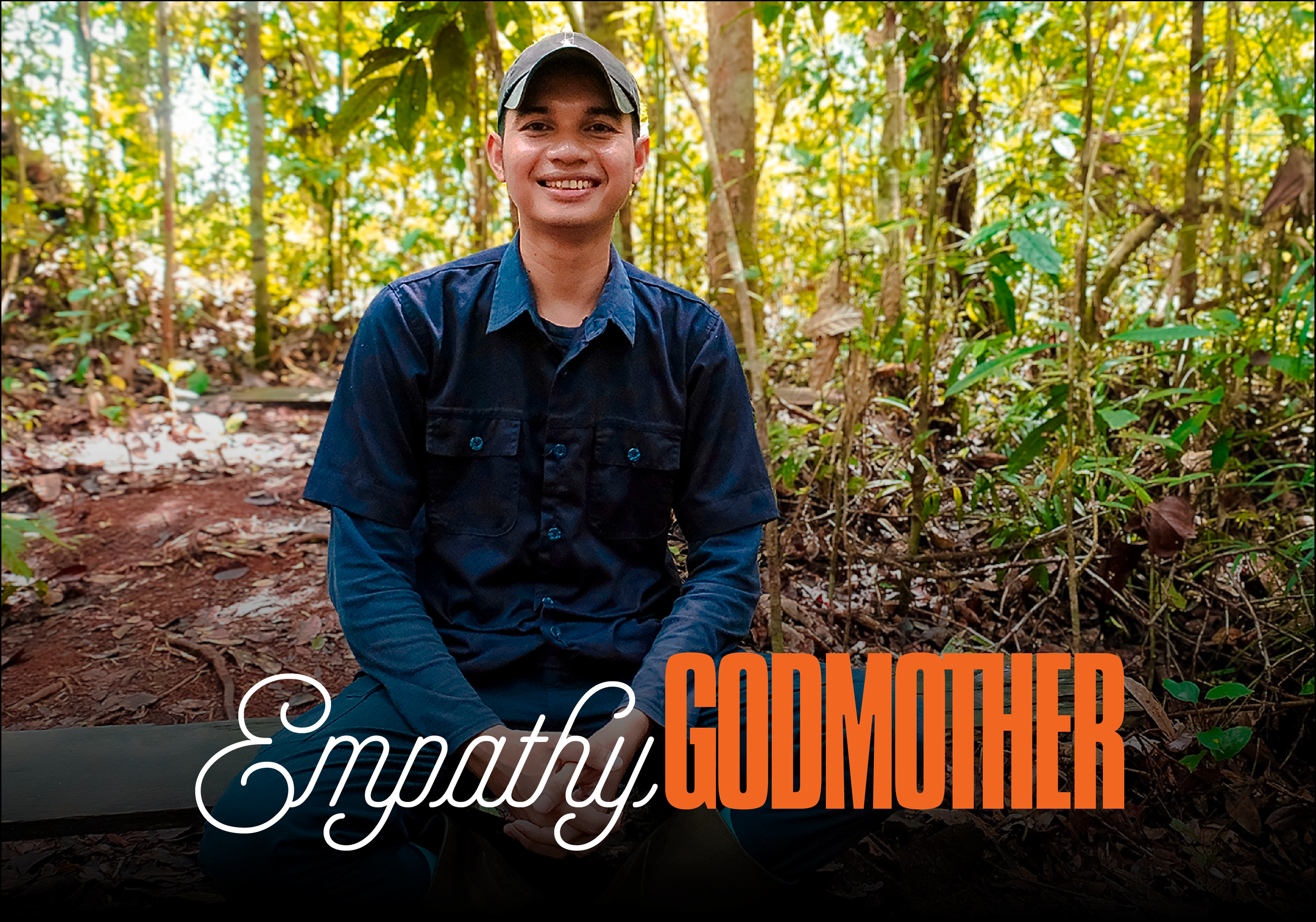“We try to encourage people to care about orangutans, but it’s very difficult when they’ve grown up in different environments and have a different awareness.”
Udin, Ranger
I was 16 and couldn’t find a job. My grandfather, who was working as a ranger, convinced me to apply to be a ranger too. At first, because I was so young, Dr. Galdikas asked me to train without any salary. It was a very challenging time, but after a year I got accepted and was entrusted to work with the orangutans. It was an extraordinary experience and I’ve been working with them ever since.
I have to talk about Rica. She’s a unique orangutan and very special to me.
Her mom, Rosemary, was blind, so they took her into the care center when Rica was still very young. She had to learn to live independently, without any love or attention from her mother, and maybe that’s why now she doesn’t want others to feel neglected or alone.
The Doyok incident perhaps says it best. There was this fearsome alpha male king named Doyok, who was always aggressive, often in a rage, especially when he wanted to mate. Other orangutans wouldn’t dare approach him. One day, he came to the feeding platform and was clearly not in good shape: he’d had a fight with another orangutan and sustained bad wounds on his head, arms and hands. Rica wasn’t afraid though. She went to him, offered him a banana, checked on his wounds, even followed him into his nest and sat comforting him. I can’t express how unusual - and courageous - that behavior was.
Photo by Udin
All the orangutans feel comfortable with Rica. She takes care of other orangutans’ babies and sometimes even youngsters who are already independent from their mothers stick close to her. She treats everyone like her friends. For example, at the feeding platform, if the wild and inexperienced orangutans don’t know how or what to eat, she will take the food, show it to them, like she’s teaching them, "you should try this, it’s different from what you find in the forest". Again, other orangutans don’t do that.
She’s also very sensitive toward my feelings, what I like, and what I don’t. Her child Ricardo would steal my clothes from the washing line and play with them, and even though I never scolded him or taught her to, Rica would always return them back to me.
“She knew I wouldn’t like them being taken, and it seemed like she was teaching her child, “you’re not allowed to do that.”
She comes to the ranger’s house sometimes, sits next to you and taps at your pockets to see if there’s any food in there, or brings a basket to me asking me to get food for her. She’s so sweet. If Rica could talk, I think she would say to me “Don’t leave me, I need people like you here.” Looking at her childhood, I think it’s important that people like me, her caregivers, always be there for her.
Photos by Udin
For me, having grown up in a village, in the forest, seeing orangutans all the time, I have empathy with them, and I understand their importance. We try to encourage people to care about orangutans, but it’s very difficult when they’ve grown up in different environments and have a different awareness. Nowadays, most children seem indifferent to nature.
More Stories






